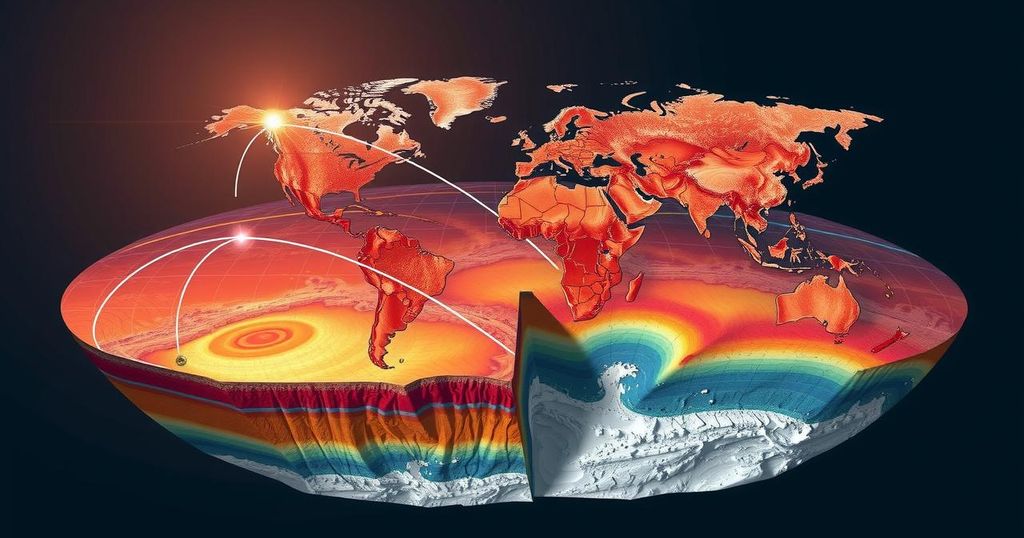A Colorado State University study reveals that climate change can increase earthquake frequency. Research on the Sangre de Cristo Mountains shows that as glaciers melt, fault slip rates rise significantly. The findings emphasize the need to monitor tectonically active regions impacted by climate change to understand potential hazards better.
A recent study conducted by geoscientists at Colorado State University has revealed a significant correlation between climate change and the frequency of earthquakes. Investigating the Sangre de Cristo Mountains in southern Colorado, researchers found that as glaciers retreated during the last ice age, the slip rate along a key fault line increased. This research highlights the potential for enhanced seismic activity in regions experiencing glacial melt due to climate change, suggesting that tectonically active areas may face more frequent earthquakes as the environmental stresses transform rapidly. First author Cece Hurtado emphasized the unprecedented speed of climate change relative to the geological record, particularly evident in the swift melting of glaciers in various mountain ranges worldwide.
The study focused on the active fault along the western edge of the Sangre de Cristo Mountains, which had been stabilized by glacial weight during the last ice age. As the glaciers melted, the research team noted that the slip rate—how quickly the fault shifted—increased fivefold compared to periods when the range was covered in ice. This alarming trend indicates that regions with glaciers or substantial water bodies could require careful monitoring for rising earthquake activity due to changing climate conditions. According to Sean Gallen, the senior author of the study, these findings present compelling evidence of the interconnectedness between the atmosphere and the solid Earth, enhancing our understanding of earthquake dynamics.
The investigation employed advanced remote sensing and field data to reconstruct historical glacial positions and assess their influence on the fault. The researchers utilized high-precision GPS measurements to analyze fault displacement against the geological timeline of sediment deposits. It is surmised that the interplay between melting glaciers and fault slip rates may vary significantly, resulting in potentially unpredictable seismic events. Additionally, the implications of this research could prove critical for seismologists working to analyze prehistoric seismic records and assess the recurrence intervals of active faults, necessitating recognition of hydrologic processes in these evaluations.
The relationship between climate change and geological processes has garnered increasing attention in recent scientific discourse. This study is particularly crucial as it establishes a direct connection between climatic shifts, such as glacial melt, and seismic activity, a connection that has been underexplored in scientific literature. The focus on the Sangre de Cristo Mountains, with their unique tectonic and glacial history, offers valuable insights into how changing environmental conditions can alter geological processes and, consequently, the frequency of earthquakes. Understanding these dynamics is essential for both hazard assessment and the broader comprehension of earth science interactions.
The findings of the Colorado State University study demonstrate a significant link between climate change and earthquake frequency, particularly in regions experiencing rapid glacial retreat. This groundbreaking research underscores the importance of monitoring tectonically active areas that are susceptible to environmental changes due to climate, as these factors may lead to increased seismic activity. By shedding light on the complex interplay between geological and climatic processes, the study paves the way for enhanced understanding and better hazard preparedness in the face of ongoing climate change.
Original Source: warnercnr.source.colostate.edu






